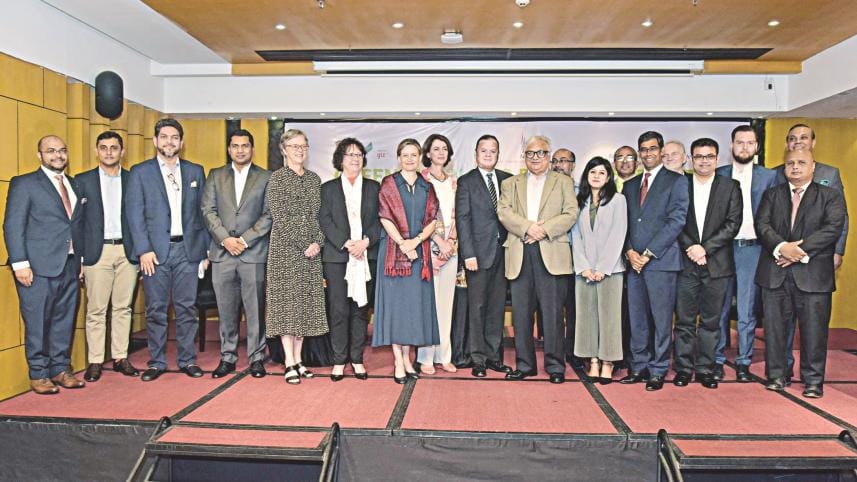Bangladesh leads world in green RMG production

Bangladesh is now home to the highest number of platinum rated garment factories in the world, which portrays the country’s strong footing in green production, a leader of the garment makers’ platform said yesterday.
Twenty-five Bangladeshi factories have achieved the highest certificate provided by the US Green Building Council (USGBC), a Washington-based non-profit organisation that promotes sustainability in building design, construction and operation.
Six out of the top 10 LEED (Leadership in Energy and Environmental Design) certified factories worldwide are located in Bangladesh, said Faisal Samad, vice-president of the Bangladesh Garment Manufacturers and Exporters Association (BGMEA).
The data shows how Bangladeshi apparel units had recovered from the disastrous Rana Plaza building collapse that took place in April 2013, he said.
Samad spoke at an event on “green financing for sustainable growth” at the Amari hotel in Dhaka organised by the Nordic Chamber of Commerce and Industry in Bangladesh (NCCI).
Currently, the total number of LEED certified green garment factories in Bangladesh is 91, which is also the highest in the world, he said, adding that the number will cross 100 if the green structures of other sectors are considered. Only a year ago, Bangladesh had 67 LEED certified green garment factories, Samad said. The BGMEA vice-president also said some 500 local garment factories have been waiting to be certified by the USGBC soon.
However, the garment entrepreneurs are not getting the return from the investment in the green initiatives, he said.
Neither the buyers nor the government has been paying incentives for such a huge spending in green factories, he said. Mashiur Rahman, economic affairs adviser to the prime minister, said the businesspeople who have been practising green garment production should be compensated by the consumers.
Everybody should ensure responsible business for sustainability in development, he said. Not only the environment, but also the sustainability of the way the business is conducted, the profit is made and the finance is used should be taken into account, Rahman said.
“In other words, I would say sustainability is what that I preserve today. But my investment today raises the value of investment tomorrow. So there has to be a continuous improvement in the quality of investment and quality of products and the technology is the key to that.” Cecilia Ruthstrom-Ruin, head of the Department for Asia and the Pacific of Sweden’s foreign affairs ministry, and Tareq Rahman, the NCCI president, also spoke at the event attended by diplomats, government high-ups, exporters, bankers, manufacturers and trade body leaders.



 For all latest news, follow The Daily Star's Google News channel.
For all latest news, follow The Daily Star's Google News channel.
Comments